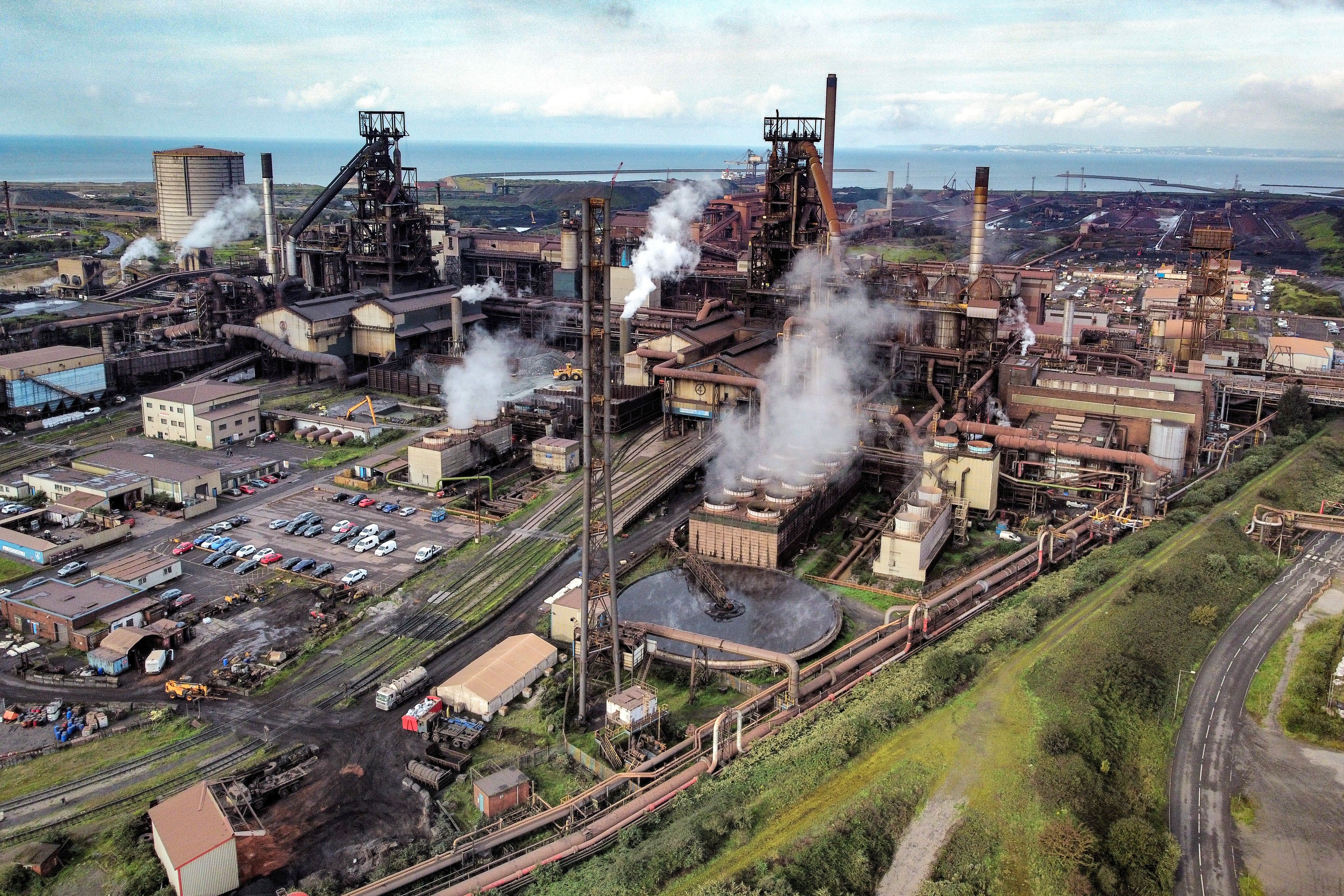Announcement on future of Port Talbot steelworks jobs delayed
The Tata Steel board was expected to give an update on job losses under plans to produce steel in a greener way.

Your support helps us to tell the story
This election is still a dead heat, according to most polls. In a fight with such wafer-thin margins, we need reporters on the ground talking to the people Trump and Harris are courting. Your support allows us to keep sending journalists to the story.
The Independent is trusted by 27 million Americans from across the entire political spectrum every month. Unlike many other quality news outlets, we choose not to lock you out of our reporting and analysis with paywalls. But quality journalism must still be paid for.
Help us keep bring these critical stories to light. Your support makes all the difference.
An expected announcement on the future of the country’s biggest steel plant is not being made on Wednesday.
Unions had been expecting confirmation of thousands of job losses at Port Talbot in South Wales.
The board of steel giant Tata met in India and was expected to give details of job losses under plans to produce steel in a greener way.
The government has said it will give up to £500 million and Tata will spend hundreds of millions of pounds in a development aimed at securing the future of the plant.
Port Talbot has two blast furnaces to produce steel used in everything from cars to cans.
It is the biggest employer in the region, also supporting jobs in companies which supply the plant with goods and services.
A Tata Steel spokesperson said: “We hope to start formal consultation with our employee representatives, shortly. In these discussions, we will share more details about our proposals to transition to a decarbonised future for Tata Steel UK.
We are committed to meaningful information and consultation process with our trade union partners about these proposals and will carefully consider any proposals put forward
“We believe our £1.25 billion proposal to transition to green steelmaking will secure the business for the longer term, bolster UK steel security and help develop a green ecosystem in the region.
“We are committed to meaningful information and consultation process with our trade union partners about these proposals and will carefully consider any proposals put forward.”
Charlotte Brumpton-Childs, GMB national officer, said: “GMB expects a full and meaningful consultation before any detailed plans are announced.
“We are working at pace with our experts Syndex to analyse the company’s proposal and offer a viable and reasonable alternative that safeguards jobs and creates a genuinely ‘just’ transition.
“This was fed back to the company this morning and remains the position of the unions.”
The UK steel industry is at a crossroads and there is a clear political choice. Politicians need to decide now whose side they are on
Unite general secretary Sharon Graham said: “Unite condemns Tata’s consideration of mass redundancies.We do not accept the need for one single job cut.
“The strategy of successive governments has failed. Taxpayers should not be footing the bill for new investment unless that is linked to binding job guarantees.
“Tata’s sole purpose is serving its shareholders, not UK steel communities. Only by the government taking a stake in the company will the right choices be made for the UK’s economy.
“The UK steel industry is at a crossroads and there is a clear political choice. Politicians need to decide now whose side they are on.
“Unite’s plan for steel would see the UK once again become a world leader in steel, doubling production, safeguarding employment and creating thousands of new jobs.”
Despite today’s press commentary, we are not in a position to make a formal announcement about any proposals for a transition to a decarbonised future for Tata Steel UK
Community general secretary Roy Rickhuss said: “We welcome Tata’s decision to cancel their announcement today on the future of Port Talbot’s heavy end.
“It’s important that the company now uses this opportunity to pause and engage with the unions, and our experts at Syndex, to develop alternative options to decarbonise our industry.
“We can decarbonise steelmaking and deliver a just transition for the dedicated workforce at Port Talbot and its downstream sites. Tata need to reflect on this and work with us to give our steel industry the bright future it deserves.”
A Tata Steel spokesperson said: “Despite today’s press commentary, we are not in a position to make a formal announcement about any proposals for a transition to a decarbonised future for Tata Steel UK.”